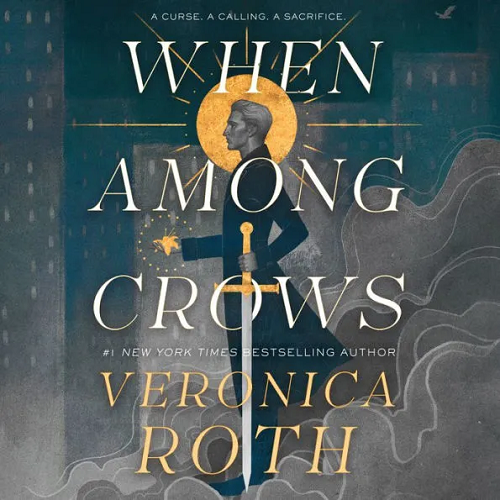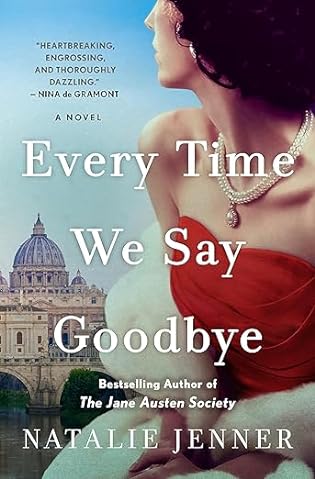 More Days at the Morisaki Bookshop (Days at the Morisaki Bookshop, #2) by Satoshi Yagisawa, Eric Ozawa
More Days at the Morisaki Bookshop (Days at the Morisaki Bookshop, #2) by Satoshi Yagisawa, Eric Ozawa Narrator: Catherine Ho
Format: audiobook, eARC
Source: purchased from Amazon, supplied by publisher via Edelweiss
Formats available: paperback, large print, ebook, audiobook
Genres: books and reading, literary fiction, relationship fiction, world literature
Series: Days at the Morisaki Bookshop #2
Pages: 176
Length: 5 hours and 21 minutes
Published by Harper Perennial, HarperAudio on July 2, 2024
Purchasing Info: Author's Website, Publisher's Website, Amazon, Barnes & Noble, Kobo, Bookshop.org, Better World Books
Goodreads
In this charming and emotionally resonant follow up to the internationally bestselling Days at the Morisaki Bookshop, Satoshi Yagisawa paints a poignant and thoughtful portrait of life, love, and how much books and bookstores mean to the people who love them.
Set again in the beloved Japanese bookshop and nearby coffee shop in the Jimbocho neighborhood of Toyko, More Days at the Morisaki Bookshop deepens the relationship between Takako, her uncle Satoru , and the people in their lives. A new cast of heartwarming regulars have appeared in the shop, including an old man who wears the same ragged mouse-colored sweater and another who collects books solely for the official stamps with the author’s personal seal.
Satoshi Yagisawa illuminates the everyday relationships between people that are forged and grown through a shared love of books. Characters leave and return, fall in and out of love, and some eventually die. As time passes, Satoru, with Takako’s help, must choose whether to keep the bookshop open or shutter its doors forever. Making the decision will take uncle and niece on an emotional journey back to their family’s roots and remind them again what a bookstore can mean to an individual, a neighborhood, and a whole culture.
My Review:
At the end of the first book, Days at the Morisaki Bookshop, it seems as if life is on the upswing for first-person narrator Takako, her eccentric uncle Satoru, and his used bookshop in the Jimbocho neighborhood of Tokyo, a place that is positively chock full of used book stores.
As this second book opens, life seems to be going well for Takoko. She’s moving forward with her life, has a job that she enjoys, a solid and happy and solidly happy romantic relationship, her uncle is happily complaining – which is his way – her aunt seems to have made peace with her uncle and their relationship seems stable and happy.
Even the bookshop seems to be doing well.
Howsomever, just as the first book started out as sad fluff, with Takoko in the depths of depression and eventually working her way out through working at the bookshop, rekindling her childhood closeness with her uncle, rediscovering the joys of reading and slowly becoming involved with the life of the neighborhood, these “more days” at the bookshop transit the path in the other direction.
At the beginning, all seems to be well. But as Takoko observes each time she returns to the bookshop to spend time and help out – the reality is that happiness is slipping out from under them.
Some parts of the various situations can be fixed – but not all of them. And not the saddest of all.
 Escape Rating A-: I picked up More Days at the Morisaki Bookshop because, having fallen in love with the first book, Days at the Morisaki Bookshop, I wanted more, well, days at the Morisaki Bookshop.
Escape Rating A-: I picked up More Days at the Morisaki Bookshop because, having fallen in love with the first book, Days at the Morisaki Bookshop, I wanted more, well, days at the Morisaki Bookshop.
And that’s exactly what I got – and it was beautiful. I’m very glad that I read it – or rather that I gave in to temptation and listened to Catherine Ho as the voice of Takako again because she does an excellent job of embodying the character.
Like the previous book, this is not a story of great doings and big happenings. It’s a quiet story, a book of slices of life, specifically the lives of Takako, her family, her friends, and the Morisaki Bookshop which so much of those lives revolve around.
But, and this is a bit of a trigger warning, the progression of this story is the opposite of the first. It starts high and ends low – even though the epilogue does a good job of letting the reader know that life moves on – even from the depths of grief.
Howsomever, the depths of that grief are very deep indeed. Especially in the excellent audio recording, where it feels as if it’s Takako’s voice telling you just how heartbroken so many of the characters are. It’s very effective, and very affecting. Readers who are already grieving someone close to their hearts will find that part of the story gut-wrenching, cathartic, or both – as this reader certainly did.
 So maybe don’t listen to that part while you’re driving because the urge to cry right along with Takako is pretty much irresistible.
So maybe don’t listen to that part while you’re driving because the urge to cry right along with Takako is pretty much irresistible.
That being said, the whole thing is lovely and charming and filled to the brim with the joy of books and reading and the people who love both – just as the first book was. I’m as happy I read this second book as I was the first – even if it did leave me a bit weepy.
This series, along with Before the Coffee Gets Cold, The Kamogawa Food Detectives, What You are Looking For Is In the Library, The Dallergut Dream Department Store and the upcoming We’ll Prescribe You a Cat are part of a marvelously charming and extremely cozy trend of magical – sometimes with real magic – comfort reads and I’m enjoying it tremendously.
If you’re looking for some cozy, comforting reads, you might want to snuggle up with some of these books too!

 The Dallergut Dream Department Store by
The Dallergut Dream Department Store by  In short, The Dallergut Dream Department Store is utterly charming, and I was absolutely charmed – even in the places where I had to tell the logical side of my brain to go to sleep and just dream the whole thing.
In short, The Dallergut Dream Department Store is utterly charming, and I was absolutely charmed – even in the places where I had to tell the logical side of my brain to go to sleep and just dream the whole thing. Earthlight by
Earthlight by  I NEED a text so I can hunt for quotes AND have a full list of characters, how their names are spelled and who played them in the audio. Because the cast was outstanding – every single one.
I NEED a text so I can hunt for quotes AND have a full list of characters, how their names are spelled and who played them in the audio. Because the cast was outstanding – every single one. The Most Human: Reconciling with My Father, Leonard Nimoy by
The Most Human: Reconciling with My Father, Leonard Nimoy by  Ghostdrift (Finder Chronicles #4) by
Ghostdrift (Finder Chronicles #4) by  Over the course of the series (
Over the course of the series ( Escape Rating A+: June is Audiobook Month, and this final book in the
Escape Rating A+: June is Audiobook Month, and this final book in the  Together, those three plots, Belos’ need for closure, Captain Ahab – actually Captain Todd – following Belos where no one REALLY should have gone before, or again, and all the crews stuck on their very own tiny Gilligan’s Island planetoid, doing their best – or worst – to get along well enough to get back home.
Together, those three plots, Belos’ need for closure, Captain Ahab – actually Captain Todd – following Belos where no one REALLY should have gone before, or again, and all the crews stuck on their very own tiny Gilligan’s Island planetoid, doing their best – or worst – to get along well enough to get back home.
 To Gaze Upon Wicked Gods (Gods Beyond the Skies, #1) by
To Gaze Upon Wicked Gods (Gods Beyond the Skies, #1) by  The Bodies in the Library (First Edition Library Mystery, #1) by
The Bodies in the Library (First Edition Library Mystery, #1) by  The discovery of a body in the Society’s library, the morning after a contentious meeting of a local writers’ group, seems a bit too much like it’s straight out of the pages of one of the Agatha Christie novels sitting on a nearby shelf, The Body in the Library.
The discovery of a body in the Society’s library, the morning after a contentious meeting of a local writers’ group, seems a bit too much like it’s straight out of the pages of one of the Agatha Christie novels sitting on a nearby shelf, The Body in the Library. Speaking of media, however, the audio was fine, and it certainly got me over the rough first third of the book that drove me away the first time around. So I’m glad I picked it up – even though once the story finally got started I got more than caught up in it enough to want to find out whodunnit a whole lot faster than audio would allow.
Speaking of media, however, the audio was fine, and it certainly got me over the rough first third of the book that drove me away the first time around. So I’m glad I picked it up – even though once the story finally got started I got more than caught up in it enough to want to find out whodunnit a whole lot faster than audio would allow. When Among Crows by
When Among Crows by  At the same time, the way this story drew in so many Slavic myths and legends that I itched for a mythopedia (I was driving, that would have had terrible consequences) reminded me, a lot and very fondly, of Neil Gaiman’s
At the same time, the way this story drew in so many Slavic myths and legends that I itched for a mythopedia (I was driving, that would have had terrible consequences) reminded me, a lot and very fondly, of Neil Gaiman’s  Every Time We Say Goodbye (Jane Austen Society, #3) by
Every Time We Say Goodbye (Jane Austen Society, #3) by  I picked this up because I loved the author’s earlier book,
I picked this up because I loved the author’s earlier book,  Escape Rating B: Before I get to the story of the book, I absolutely need to say something about the audiobook. Specifically, that the audiobook is excellent. The reader, Juliet Aubrey, was a perfect choice and she made the whole thing better and carried me through even at points where I wondered how the parts of the story connected to each other because she was just awesome.
Escape Rating B: Before I get to the story of the book, I absolutely need to say something about the audiobook. Specifically, that the audiobook is excellent. The reader, Juliet Aubrey, was a perfect choice and she made the whole thing better and carried me through even at points where I wondered how the parts of the story connected to each other because she was just awesome. .
. Funny Story by
Funny Story by  Escape Rating A: I started out listening to this one, and that’s probably what got me over the hump of the early chapters. This is one of those stories that, of necessity, has a very hard start. We meet Daphne just after very nearly the entire life she had planned crashed and burned. She’s wallowing in a whole lot of angst and regret and self-recrimination, nearly buried by the weight of her emotional baggage piling up all around her. Listening to the excellent narrator makes the listener feel like they are literally inside Daphne’s mostly despairing head and it’s a realistically well-portrayed terrible place to be.
Escape Rating A: I started out listening to this one, and that’s probably what got me over the hump of the early chapters. This is one of those stories that, of necessity, has a very hard start. We meet Daphne just after very nearly the entire life she had planned crashed and burned. She’s wallowing in a whole lot of angst and regret and self-recrimination, nearly buried by the weight of her emotional baggage piling up all around her. Listening to the excellent narrator makes the listener feel like they are literally inside Daphne’s mostly despairing head and it’s a realistically well-portrayed terrible place to be. That Peter ultimately gets the shaft all the way around turned out to be merely the icing on a very tasty cake of a book – or perhaps that should be the slathering of cheese and jalapenos on a fresh, hot serving of Petoskey fries. The part that makes a good thing just that much better.
That Peter ultimately gets the shaft all the way around turned out to be merely the icing on a very tasty cake of a book – or perhaps that should be the slathering of cheese and jalapenos on a fresh, hot serving of Petoskey fries. The part that makes a good thing just that much better.